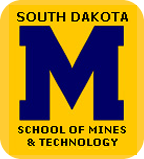2007 Program Educational Objectives Review
The Advisory Board met on Dec
2, 2007 to review the department’s mission:
· Provide a
quality program leading to the degree B.S. in Metallurgical Engineering
· Participate in
multi-disciplinary programs leading to the M.S. and Ph.D. degree programs in
materials engineering and science
· Contribute to
the expansion of knowledge in the area of materials and metallurgical
engineering through scholarly activities
·
Help local, regional, national and international
materials and metallurgical industries through research and development
activities
As part of the
first mission statement the board reviewed progress towards meeting the B.S.
Metallurgical Engineering program educational objectives:
- Successfully apply metallurgical
engineering principles in their employment
- Meet societal needs through
science and technology
- Grow professionally and
personally
- Serve their profession and
community
The board concluded:
·
There was no need
to modify the department mission or the program educational objectives.
·
The program had
successfully negotiated the retirement and replacement of three faculty
members.
·
The department
needs to assure adequate undergraduate enrollment to avoid the threat of
program sanctions or closure. A goal of 80 students is a reasonable goal.
·
Being a strictly
metallurgical engineering undergraduate program is a useful nitch.
The program faculty
reviewed the Advisory Board Report.
Loop closure on the 2004 Actions is
summarized here.
2004 Evaluation Process Actions Completed
·
Employer feedback on program alumni is now obtained through
the population of the Advisory Board with employers of the alumni. This avoids the confidentiality difficulties
that arose from employer surveys while providing direct quality feedback on
alumni performance.
·
Alumni survey questions have been directly aligned with the
program educational objectives rather than with the previous incorrect
alignment with program outcomes.
·
Program educational objective evaluation is now designed to
receive input from alumni surveys, and constituent focus groups, and the
Advisory Board. Actions to improve
attainment of the program educational objectives will be determined by the
program faculty.
2004 Objective Improvement Actions Completed
·
The pre-retirement faculty implemented a demanding
laboratory rewrite process in selected program laboratories. This expectation is clear to the new faculty
and associated training and review procedures for all faculty members are
established.
·
At least one class period equivalent per program course is
now expected so as to distribute ethics across the curriculum.
·
Students receive instruction in global issues in MET 310
and MET 321 and are required to write a paper with elements of global issues.
2007 Program Educational Objective Actions
Evaluation Process
·
Employer Surveys continue to be difficult to obtain because
employers are increasingly hesitant to provide confidential information. Therefore, the employer survey will be
abandoned in favor of interview input from interviewers and our alumni who
employ SDSM&T graduates. The
established relationships we have with interviewers and employing alumni will
promote the unfettered input.
·
Employer survey questions continue to be aligned closely
with the Program Objectives rather than with the currently alignment with
Program Outcomes.
·
Alumni survey questions are now aligned closely with the
Program Objectives.
·
Alumni surveys are to go online using Survey Monkey.
·
Survey Monkey needs to be written to complete objective evaluation
for SDSM&T Departments, SDSM&T student.
·
The Student Satisfaction-Importance (SSI) survey should be
renamed the Non-Program Alumni Satisfaction Survey and be limited to those
non-program alumni since they are surveyed elsewhere.
Implementation Plan
·
Populate the Advisory Board with employers and use input
from the Alumni Survey and the board to evaluate program objectives.
·
Rewrite the Alumni Survey to include direct align with
program objectives.
·
Purchase (subscribe to) Survey Monkey.
·
Determine if the SSI Survey is worth the effort and, if so,
work for better participation and definition of the results.
Objective Improvement
·
A new President will likely restate and reformat the
institutional Goals and Objectives.
Therefore there will be a need to remap the Program Objectives to any
restated Institutional Goals and Objectives.
·
Communication skills may suffer during program faculty
transition. After transition, the
program should establish common understanding of writing and oral communication
goals.
·
The effectiveness of the newly implemented modules on ethics,
professionalism, and global issues need to be assessed.
Implementation Plan
·
Participate in campus visioning and offer input so as to
maintain our establish objectives.
·
Train new faculty in writing expectations and procedures.
·
Assess ethics, professionalism, and global issues on the Senior
Exit Exam to assure alumni are prepared to achieve the program educational
objectives related to these topics.
